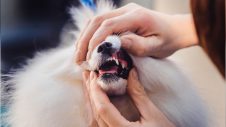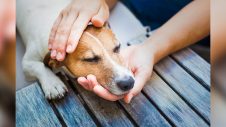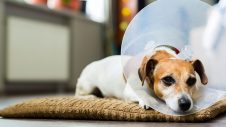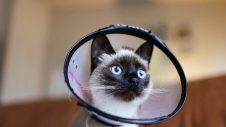Desexing
Your pet has been desexed under a general anaesthetic. While desexing is common and safe, keep in mind that it is still a surgical procedure, and for female dogs and cats it involves major intra-abdominal surgery. Your pet’s recovery will depend on the care you provide them, so it is important that you ease them through this healing process. With the right aftercare, you can ensure your dog or cat remains safe and comfortable, and reduce the risk of any problems developing.
Anaesthetic
The anaesthetic that has been administered to your dog or cat will typically not wear off until a few hours after the surgery and it can even last overnight. However, if your pet is still lethargic and drowsy 24 hours after the surgery, please get in contact with your local Greencross Vets clinic.
Surgical site
For female cats, and male and female dogs that have just been desexed you must inspect their wound daily over the next 10-14 days for discharges, swelling, or missing sutures and notify the Greencross Vets clinic if any of these occur.
Pets who have received dissolvable skin sutures will not need suture removal, however they will require a vet checkup in 10-14 days so your Greencross Vet can ensure that their wound is healing well. This is a free appointment which you can book in now.
For male cats, desexing is a relatively straightforward procedure and does not require any stitches. They will have two small incisions below their bottom which you must prevent them from licking. Male cats also require a checkup 10-14 days post-surgery.
Some pets with wounds will attempt to constantly lick the area which can cause damage. To prevent your pet from irritating their wound or chewing through their sutures, your Greencross Vets clinic can provide your pet with an ‘Elizabethan collar’.
Do not bathe your pet or wet the surgical site in any way for 10-14 days after the procedure as this can cause problems.
Food and water
After the surgery, your dog or cat is free to eat and drink as normal. However they may experience nausea and a lack of appetite due to the drugs used in the surgery. If your pet is vomiting or refusing to eat any food, please contact your Greencross Vet.
Rest and exercise
After they have been desexed, encourage your dog or cat to rest as much as possible to aid their healing process. Please limit their exercise and avoid any strenuous activity for example climbing stairs, jumping up and down from couches or beds, or rough play. Some pets may need to be restricted to a small room or a crate to so they do not strain their wound.
Female cats must be kept indoors until their sutures have been removed, or have completely dissolved. Male cats must be separated from any females on heat for one week after the operation as there may still be viable sperm in their lower passages that cannot be removed by surgery. Only after this week has passed will male cats not be able to sire any kittens.
You may take your dog outside for short walks while they are on a lead, but try to limit these to toilet trips only.
Warning signs to look out for
Call your Greencross Vets clinic immediately for advice if:
- you notice swelling or bleeding around the wound area
- your dog or cat is licking the wound constantly, or the wound appears red and angry
- your pet is not responding to treatment as you feel they should be
- you need to wash your pet or treat them for fleas before the stitches are removed
- you have any questions about your dog or cat’s health at all

 Greencross Vets
Greencross Vets 









